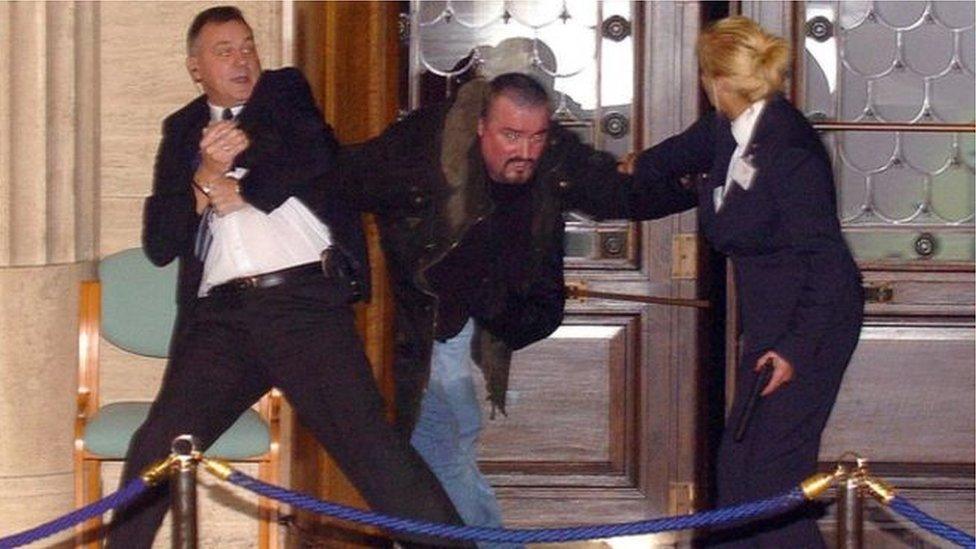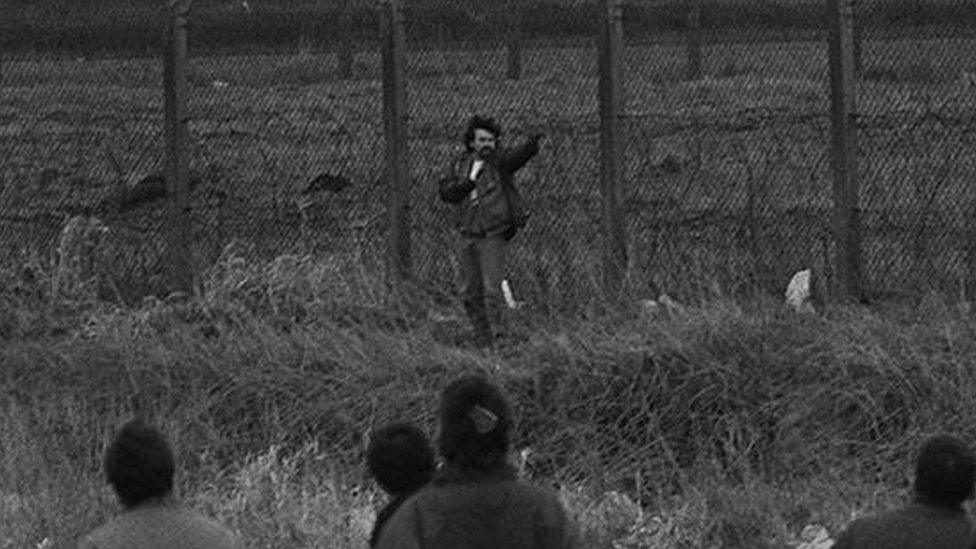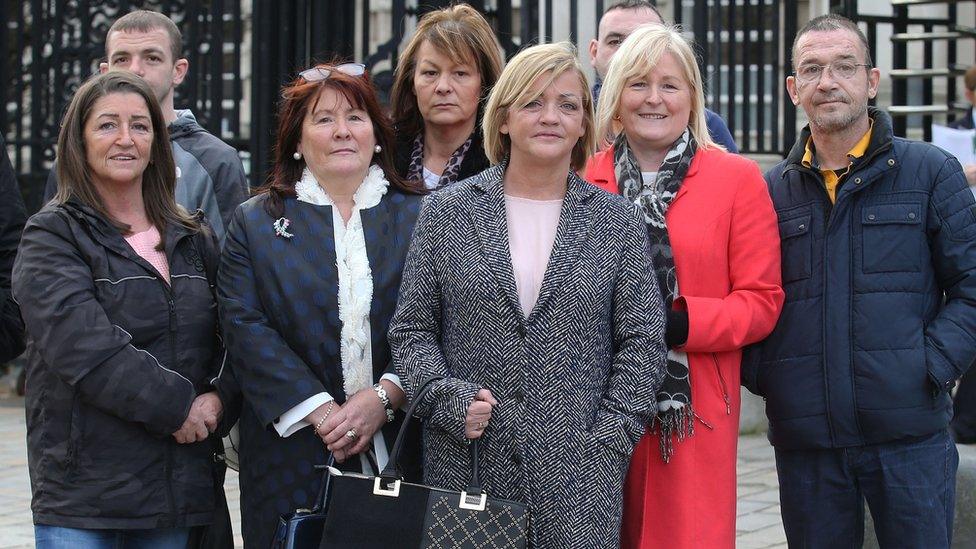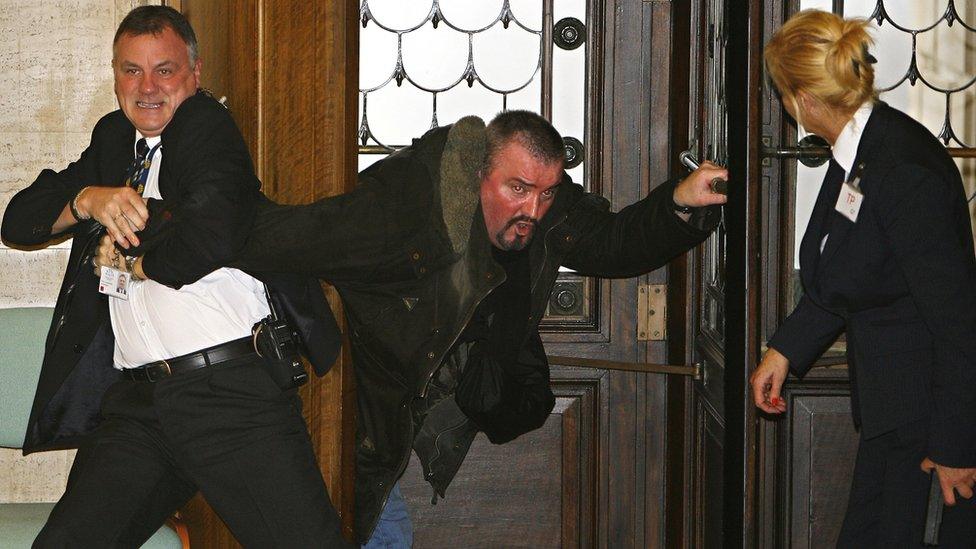Michael Stone: Supreme Court will not hear prisoner release case
- Published

Michael Stone (centre) being restrained during the attack at Stormont in 2006
The Supreme Court has ruled it does not have the jurisdiction to hear appeals in a dispute over when loyalist Michael Stone can be released from prison.
Stone, who has six murder convictions, got early release under the Good Friday Agreement, external 11 years into a 30-year term.
He was sent back to jail in 2006 for trying to kill Sinn Féin's Gerry Adams and Martin McGuinness at Stormont.
Stone's appeal tried to overturn a High Court ruling which said would not be eligible for release until July 2024.
However, after lengthy legal arguments, the Supreme Court has concluded that his appeal, and a separate appeal by Stormont's Department of Justice, do not constitute "a criminal cause or matter" that could be considered by the higher court.
Last year's High Court case, which delayed Stone's release by five and a half years, was the result of a judicial review taken by Deborah McGuinness, a sister of one of his six murder victims.
Her brother, Thomas McErlean, was among three people killed in a gun and grenade attack in a Belfast graveyard in 1988.
Stone was caught on camera as he launched attacks on mourners who were attending the funerals of three IRA men in Milltown Cemetery.

Michael Stone was filmed firing shots and throwing grenades at funeral mourners in 1988
For those murders, and three further paramilitary killings, Stone was given a life sentence in 1989 with a recommended tariff of 30 years.
Stone's other victims were:
Milkman Patrick Brady, who was murdered in south Belfast in 1984
Joiner Kevin McPolin, who was shot in the head in Lisburn, County Antrim, in 1985
Bread delivery driver Dermott Hackett, who was shot up to 16 times with a submachine gun in his work van in 1987
Stone was released on licence in July 2000, but his licence was later revoked after he was convicted of attempting to murder Sinn Féin's leadership in Stormont.
Last year, Ms McGuinness successfully argued in the High Court that Stormont's Department of Justice was wrong to count the six years that Stone spent on licence as part of his 30-year tariff.
A High Court judge ruled that Stone's attack on Stormont meant he must forfeit the "exceptional benefit" afforded by the Good Friday Agreement and revert to "pre-release status".

Deborah McGuinness, centre, pictured after the High Court ruled in her favour last year
The January 2019 ruling is subject to an appeal by Stone and, separately, by the Department of Justice.
Northern Ireland's Attorney General John Larkin then intervened in the appeals, raising an issue about the Supreme Court's jurisdiction in such a matter.
He argued that the High Court's ruling on Stone's parole was not "in a criminal cause or matter" in the proper interpretation of that term.
Mr Larkin recommended that the proper avenue of appeal against Ms McGuinness's judicial review proceedings was for the case to go to the Court of Appeal in Northern Ireland,
Wednesday's ruling accepted that the Supreme Court "does not have jurisdiction to entertain these appeals".
The judges said they did not believe it was "appropriate" to comment on the merits of the appeals, in case the matter comes back to the Supreme Court at a later date.
- Published1 August 2019

- Published15 January 2019
